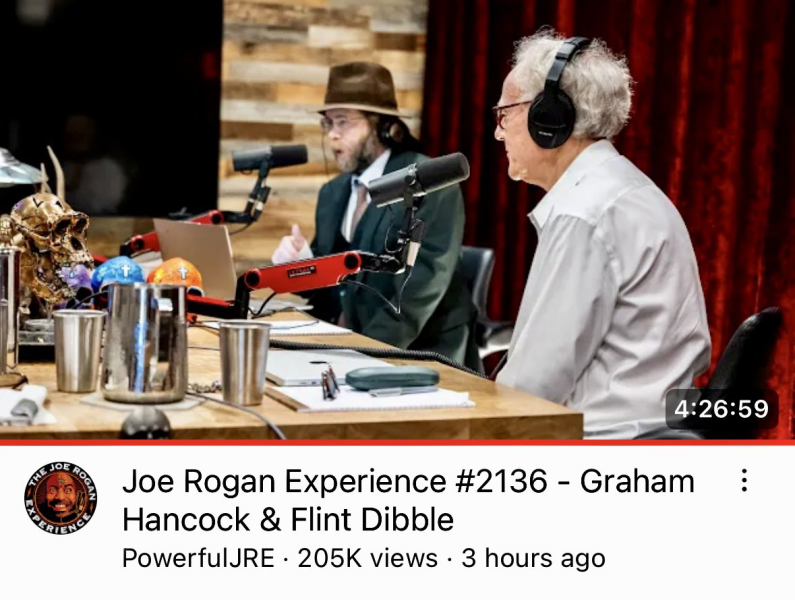The long awaited discussion between Graham Hancock and archaeologist Flint Dibble on the Joe Rogan Experience podcast is now available. Here are my thoughts after listening to the whole four and a half hour thing, and after following many more social media threads on this than I wanted to. First, people are interested in the…
Flint Dibble and Graham Hancock on Joe Rogan: Key Takeaways
